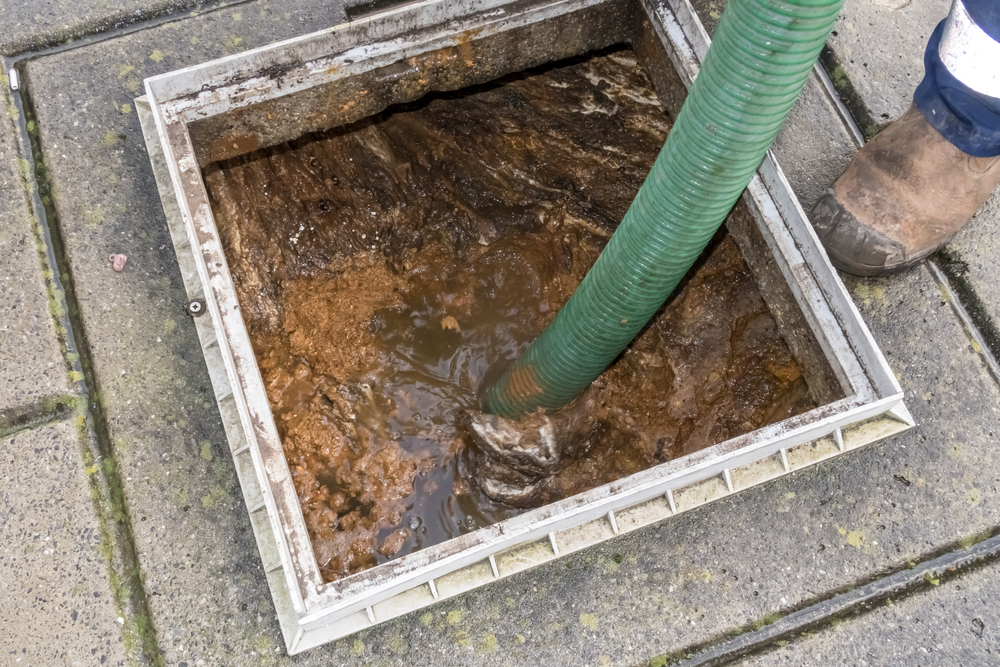

Septic tanks are an essential component of many residential and commercial sewage systems. They work by separating solids from liquids and facilitating the decomposition of organic matter. However, when a septic tank overflows, it can lead to a variety of serious health issues. In this blog, we will explore the health risks associated with overflowing septic tanks, addressing common questions such as “What are the health risks of overflowing septic tanks?” and “Can an overflowing septic tank cause health issues?”
The Health Risks of Overflowing Septic Tanks
Overflowing septic tanks can pose significant health risks to individuals and the surrounding environment. These risks include exposure to harmful pathogens, chemical contaminants, and environmental pollution. Let’s break down these risks in detail.
Exposure to Pathogens
One of the primary health concerns associated with overflowing septic tanks is exposure to harmful pathogens. Sewage contains a variety of bacteria, viruses, and parasites that can cause serious illnesses. Common pathogens found in sewage include E. coli, Salmonella, and Hepatitis A. When a septic tank overflows, these pathogens can contaminate soil and water sources, potentially leading to gastrointestinal infections, respiratory issues, and skin diseases.
Chemical Contaminants
In addition to biological hazards, septic tanks can also contain chemical contaminants from household cleaners, pesticides, and other chemicals. When these chemicals are not properly treated, they can leach into the environment, posing risks to both human health and wildlife. Chemical contamination can lead to long-term health issues, including neurological damage and respiratory problems.
Environmental Pollution
Overflowing septic tanks can result in significant environmental pollution. Sewage that escapes from an overfilled tank can contaminate nearby water sources, such as rivers, lakes, and groundwater. This pollution not only harms aquatic life but can also affect drinking water supplies. Contaminated water can lead to a range of health issues, including infections, chronic illnesses, and reproductive problems.
Symptoms of Exposure
If you suspect that you have been exposed to contaminants from an overflowing septic tank, it’s important to be aware of the symptoms of exposure. Common symptoms include:
- Gastrointestinal Issues: Nausea, vomiting, diarrhea, and abdominal cramps are common signs of gastrointestinal infections caused by exposure to pathogens.
- Respiratory Problems: Coughing, wheezing, and shortness of breath may indicate respiratory infections or irritation due to chemical exposure.
- Skin Irritations: Rashes, itching, and other skin problems can result from direct contact with contaminated sewage.
Preventing Septic Tank Overflows
Preventing septic tank overflows is crucial for safeguarding health and the environment. Regular maintenance is key to ensuring that your septic system functions properly. Here are some tips to help prevent overflow issues:
Regular Inspections and Pumping
Have your septic tank inspected and pumped regularly by a professional. Most experts recommend pumping the tank every 3 to 5 years, depending on the size of the tank and household usage. Regular inspections can help identify potential issues before they become severe.
Proper Waste Disposal
Avoid flushing non-biodegradable items, such as wipes, feminine hygiene products, and chemicals, down the toilet. These items can cause blockages and disrupt the proper functioning of your septic system.
Manage Water Usage
Reduce excessive water usage in your home by fixing leaks, using water-efficient fixtures, and spreading out laundry loads. High water usage can overwhelm the septic system and contribute to overflow problems.
Maintain the Drain Field
Ensure that the drain field area is properly maintained and free from heavy objects or construction activities. Compacted soil or damage to the drain field can hinder the effective treatment of wastewater.
What to Do if Your Septic Tank Overflows
If you experience an overflowing septic tank, it’s important to take immediate action to address the issue. Here are the steps you should follow:
- Avoid Contact: Keep away from the area affected by the overflow to prevent exposure to contaminants.
- Contact a Professional: Call a licensed septic tank service provider to assess and address the problem. They can perform repairs and provide guidance on cleaning and disinfecting affected areas.
- Report to Authorities: If the overflow has resulted in significant environmental contamination, report it to local environmental or health authorities. They can help manage the cleanup process and assess potential risks.
Conclusion
Overflowing septic tanks can have serious health implications, including exposure to harmful pathogens, chemical contaminants, and environmental pollution. By understanding the risks and taking proactive measures to maintain your septic system, you can help protect yourself, your family, and the environment. Regular inspections, proper waste disposal, and effective water management are essential for preventing overflow issues and ensuring the safe operation of your septic system. If an overflow does occur, prompt action and professional assistance are crucial for mitigating health risks and addressing environmental concerns.
Need Septic Contractors in Bethel, OH?
Gullett Sanitation Services, Inc. offers mobile de-watering of sludge and slurries in and around Bethel, OH, utilizing Roediger belt filter presses, as well as services and repairs on all major brands of home aeration systems. We also work with jet aeration and cleaning for sewer system lines (up to 8 inches in diameter), permits and consultation for biosolids, the transportation of non-hazardous wastewater, sludge removal from all types of waste lagoons, service and repairs on residential sewer systems, and the removal of grit, rags, and debris from anaerobic or aerobic digesters. Give us a call today and let us be your septic and dewatering service in Ohio!
